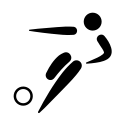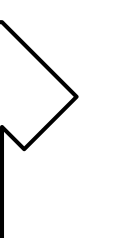Reprezentacja Brytyjskich Wysp Dziewiczych w piłce nożnej mężczyzn
| Przydomek | The Nature Boyz |
|---|---|
| Związek | British Virgin Islands Football Association |
| Sponsor techniczny | Adidas |
| Trener | John Reilly |
| Skrót FIFA | VGB |
| Ranking FIFA | |
| Zawodnicy | |
| Kapitan | Andy Davis |
| Najwięcej występów | Desire Montgomery Butler (20) |
| Najwięcej bramek | Avondale Williams (5) |
| Mecze | |
| Pierwszy mecz (Basseterre, Saint Kitts i Nevis; 10.05.1991) | |
| Najwyższe zwycięstwo (Port-au-Prince, Haiti; 19.03.1999) (Road Town, Brytyjskie Wyspy Dziewicze; 27.02.2000) (Road Town, Brytyjskie Wyspy Dziewicze; 30.01.2004) | |
| Najwyższa porażka (San Cristobal, Dominikana; 14.10.2010) | |
| Strona internetowa | |
| |
Reprezentacja Brytyjskich Wysp Dziewiczych w piłce nożnej – narodowa drużyna Brytyjskich Wysp Dziewiczych, brytyjskiej posiadłości na Karaibach. Jest pod kontrolą Federacji Piłki Nożnej Brytyjskich Wysp Dziewiczych (ang. "British Virgin Islands Football Association"), założoną w 1974, członkiem CONCACAF i FIFA została w 1996.
Nigdy nie zakwalifikowała się do finałów Mistrzostw Świata ani Złotego Pucharu CONCACAF. Trenerem reprezentacji jest John Reilly.
Reprezentacja Brytyjskich Wysp Dziewiczych zajmowała 18 maja 2011 28. miejsce w CONCACAF.
Trenerzy
 Gary White (1998–1999)
Gary White (1998–1999) Gregory Grant (2000)
Gregory Grant (2000) William H. Moravek (2000–2001)
William H. Moravek (2000–2001) Patrick Mitchell (2002)
Patrick Mitchell (2002) Michael Tulloch (2004)
Michael Tulloch (2004) Ben Davies (2004)
Ben Davies (2004) Patrick Mitchell (2008)
Patrick Mitchell (2008) Avondale Williams (2010–2017)
Avondale Williams (2010–2017) John Reilly (od 2018)
John Reilly (od 2018)
Udział w Mistrzostwach Świata
Udział w Złotym Pucharze CONCACAF
- 1991 – 1993 – Nie zakwalifikowały się
- 1996 – Wycofały się w trakcie kwalifikacji
- 1998 – 2005 – Nie zakwalifikowały się
- 2007 – Wycofały się w trakcie kwalifikacji
- 2009 – 2019 – Nie zakwalifikowały się
Udział w Pucharze Karaibów
Media użyte na tej stronie
Pictograms of Olympic sports - Football. This is unofficial sample picture. Images of official Olympic pictograms for 1948 Summer Olympics and all Summer Olympics since 1964 can be found in corresponding Official Reports.
Icon representing a decrease, consisting of a red-colored, down-pointing triangle.
The flag of the Dominican Republic has a centered white cross that extends to the edges. This emblem is similar to the flag design and shows a bible, a cross of gold and 6 Dominican flags. There are branches of olive and palm around the shield and above on the ribbon is the motto "Dios,Patria!, Libertad" ("God, Country, Freedom") and to amiable freedom. The blue is said to stand for liberty, red for the fire and blood of the independence struggle and the white cross symbolized that God has not forgotten his people. "Republica Dominicana". The Dominican flag was designed by Juan Pablo Duarte, father of the national Independence of Dominican Republic. The first dominican flag was sewn by a young lady named Concepción Bona, who lived across the street of El Baluarte, monument where the patriots gathered to fight for the independence, the night of February 27th, 1844. Concepción Bona was helped by her first cousin María de Jesús Pina.
Flag of England. Saint George's cross (a red cross on a white background), used as the Flag of England, the Italian city of Genoa and various other places.
Flag placeholder. See also Category:Flag placeholders and Coats of arms of None.svg.
The flag of Navassa Island is simply the United States flag. It does not have a "local" flag or "unofficial" flag; it is an uninhabited island. The version with a profile view was based on Flags of the World and as a fictional design has no status warranting a place on any Wiki. It was made up by a random person with no connection to the island, it has never flown on the island, and it has never received any sort of recognition or validation by any authority. The person quoted on that page has no authority to bestow a flag, "unofficial" or otherwise, on the island.
Flag of Jamaica. “The sunshine, the land is green, and the people are strong and bold” is the symbolism of the colours of the flag. GOLD represents the natural wealth and beauty of sunlight; GREEN represents hope and agricultural resources; BLACK represents the strength and creativity of the people. The original symbolism, however, was "Hardships there are, but the land is green, and the sun shineth", where BLACK represented the hardships being faced.
Flag of Anguilla (adopted on 30 May 1990) - RGB colours, 1:2 dimensions and construction details based partly on the templates: Flag of Anguilla – A Brief History
Autor: Jonas Faccio, Licencja: CC BY-SA 4.0
Ilhas Virgens Britanicas 2016

























